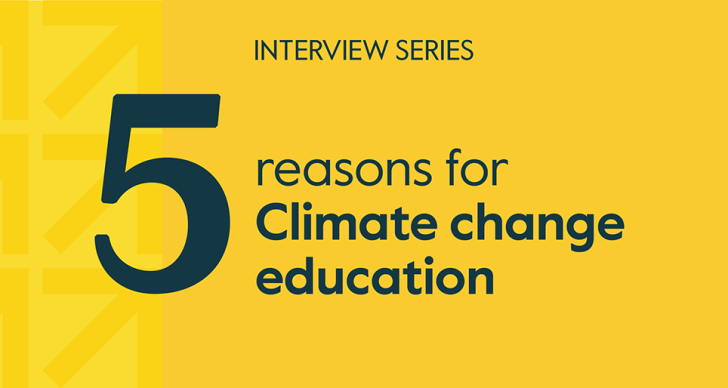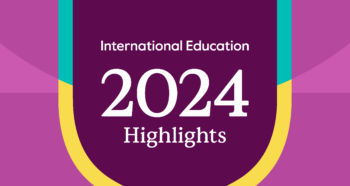This series of blogs features views from schools on the importance of educating learners with the knowledge and skills they need to thrive, contribute, and be ready for a changing world.
1. What are some of the ways that you teach climate change inside and outside your classroom?
A: We put a lot of emphasis on connecting to the climate on a personal level. Then, we look outwards to our local community, then nationally, and finally when we get to IGCSE, we start to connect those pieces together by looking at climate change on a global scale, seeing how it impacts people around the world.
The Cambridge IGCSE Global Perspectives is crucial in getting students to think outside their comfort zones.
2. What has been your experience of teaching climate change education through Cambridge IGCSE Global Perspectives?
A: The Cambridge IGCSE in Global Perspectives is incredible because of its flexibility. It allows us to empower our students and equip them with the skills and knowledge to carry out research effectively. This is particularly important because of the world we live in and dealing with misinformation that comes from all directions.
The Cambridge IGCSE Global Perspectives teaches students crucial skills and we add an extra layer with eco-literacy, which includes the topics we value here at Arbor, such as climate action. We currently also use the UN Global Goals as a roadmap to help push our curriculum forward.
Climate change education is THE most important thing. If we are equipping students with knowledge, we know that knowledge equates to power and action. Young people are the future and, if they are to halt climate change, they need to understand what it involves and how systems are interconnected.
3. Teaching climate change is a key skill that teachers need today. How can schools ensure that teachers are prepared and confident to teach climate change?
A: We’re very aware of ‘climate anxiety’ where young people are extremely worried about things they feel they have little control over. Therefore, it is important that as teachers we give students the tools to empower themselves, and that means teaching them that while they may not be able to solve the climate crisis at a global level, our students can have an impact locally.
Here at The Arbor School, we teach something called ‘the global impact certificate’, where students identify an issue in the school or community and put together a plan to make a change. This helps reduce their anxiety levels because they see they can bring about change.
The advice I have for colleagues who are at the start of the journey of teaching climate change is to be very well-informed and to keep hope at the forefront of lessons; empowering students is a great way of doing that.
4. And when learners feel empowered by teachers, how does that prepare them for the next steps in their journey?
A: If learners feel empowered, they have the skills they can take with them to their studies and the next stages in their lives. In their spheres of influence, they see that they can change their own behaviors, but we want them to understand they can influence beyond themselves – their families and communities. We want them to understand they have the right tools at their fingertips to spread the correct information.A: If learners feel empowered, they have the skills they can take with them to their studies and the next stages in their lives. In their spheres of influence, they see that they can change their own behaviors, but we want them to understand they can influence beyond themselves – their families and communities. We want them to understand they have the right tools at their fingertips to spread the correct information.
5. Finally, what support do you need from Cambridge to deliver high-quality climate change education to your learners?
A. Thank you for that question. As teachers, we see a whole range of information out there and what we need is information that is up to date and relevant. We currently use many of the UN Global Goals to deliver climate change education, but we would like effective workshops where teachers can share the things that work for them. Teachers also need toolkits on how to get students out into their communities and make a change. These are the things we are looking for from Cambridge.
See our blogs, news, and videos on climate change education





